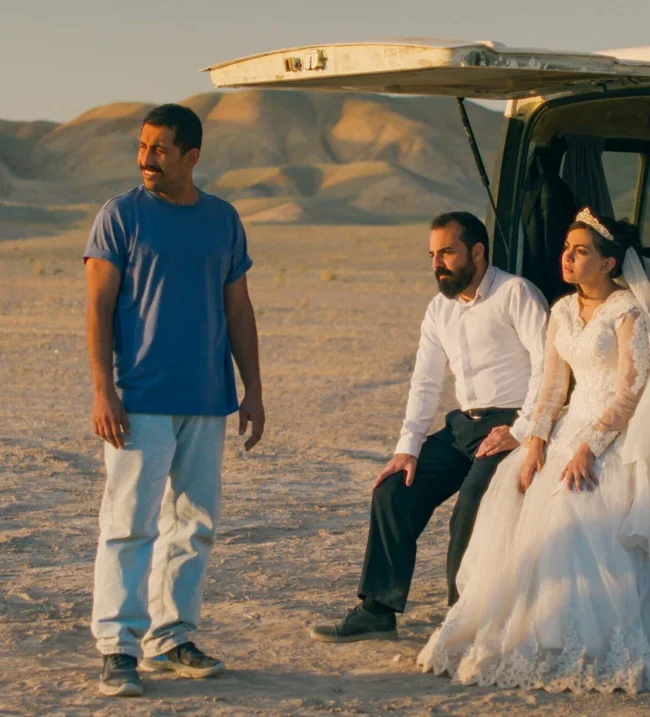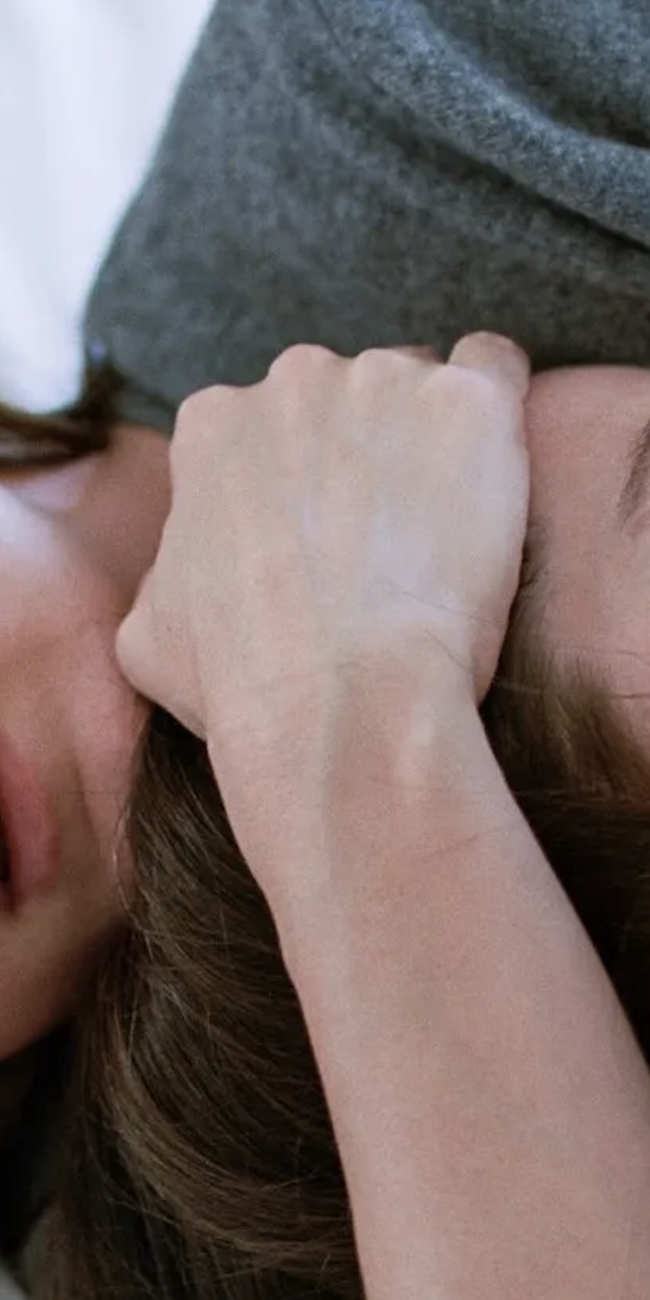A Conversation with Halfdan Ullmann Tøndel & Renate Reinsve (ARMAND)
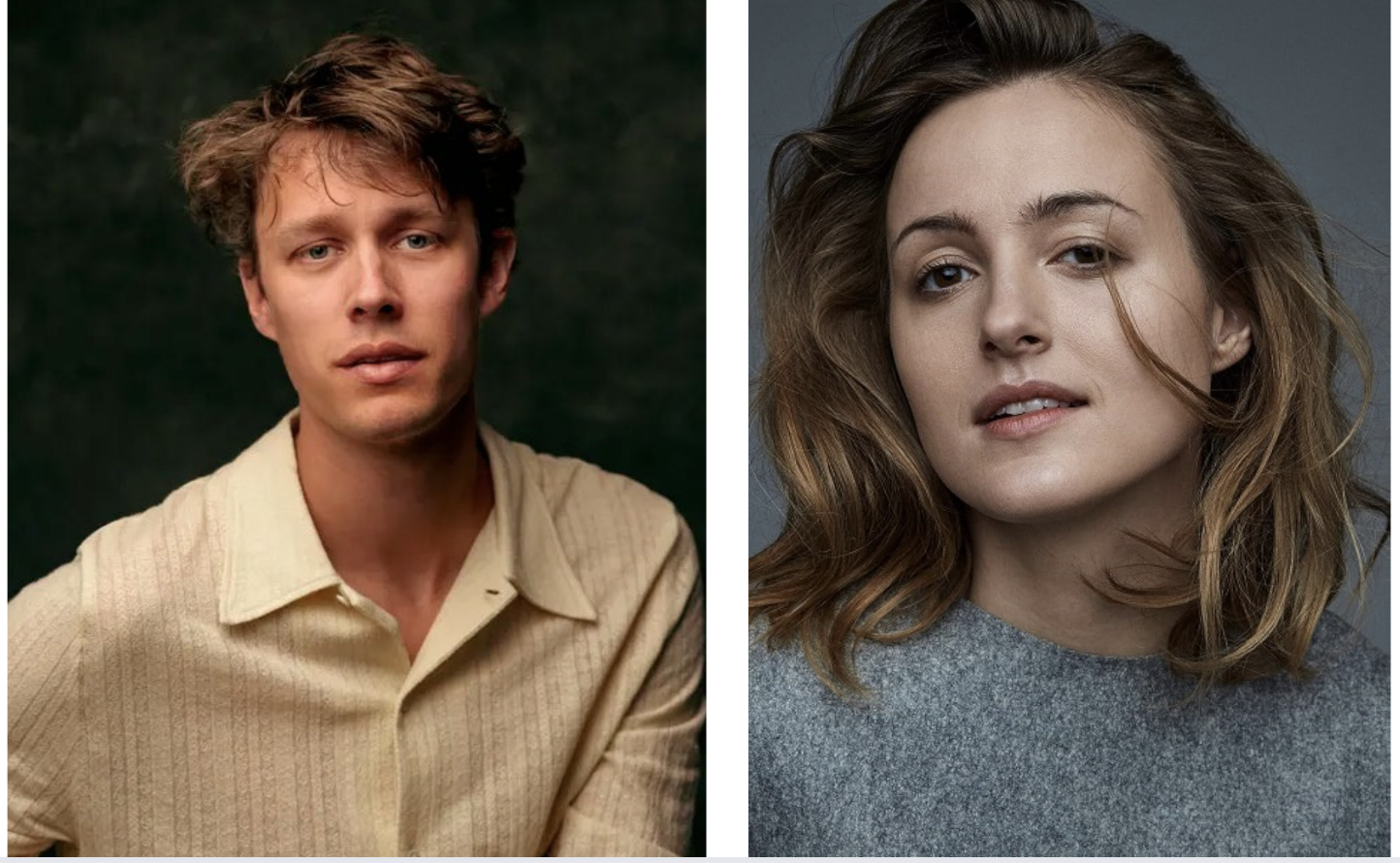
Premiering to critical acclaim in the Un Certain Regard section at Cannes 2024, Armand marks the feature debut of Norwegian filmmaker Halfdan Ullmann Tøndel. Set entirely within the labyrinthine corridors of an elementary school after hours, this tense psychological drama follows Elisabeth (Renate Reinsve), a defamed actress and single mother who is summoned to a parent-teacher meeting about her six-year-old son. What begins as a seemingly straightforward discussion spirals into a claustrophobic chamber piece exploring boundaries, trauma, and how adults construct their own realities when confronting uncomfortable truths.
I was joined by director Halfdan Ullmann Tøndel, grandson of legendary filmmaker Ingmar Bergman, and star Renate Reinsve, whose magnetic performance anchors the film with remarkable emotional depth and physical intensity. Their collaboration spans back to 2016, resulting in a work that masterfully blends psychological tension with moments of unexpected humor and surrealism. With its striking visual language, bold choreographed sequences, and unflinching exploration of parental anxiety and institutional responsibility, Armand represents an exciting new chapter in Norwegian cinema’s current renaissance.
Hammer To Nail: Halfdan, you mentioned being inspired by a real incident from a camping trip, and Renate, you were involved from the very beginning of the project in 2016. How did the story and Elisabeth’s character evolve through your long-term collaboration?
Halfdan Ullmann Tøndel: Her traits, and the concept of her character was the same throughout the process. I would say that she went through a bigger journey throughout the drafts. Renate has said that it became more and more extreme and I think she is right. There were a lot of things happening in my life throughout those years. I tried to just take everything in. When you can write for an actor like Renate, you want to use her full potential as well. I was very inspired by how far I could push the character.
HTN: The school setting becomes almost like another character, with its Gothic architecture. How did the location influence both the direction and performance choices? Talk about finding that location.
HUT: The feeling of the school was really there with me from the beginning. I remember sleeping over at my school when I was 12 and I was always really struck by the mysterious feeling of the school after hours. It was such a big contrast to the school during the day. It was as if the soul of the building came alive at night. Ghosts from the past running in the hallways. It was pretty hard to find the location. We looked at 250 schools before we found the right one. It was really difficult finding something that fit the image I had in my head. The school was also perfect but it gave us flexibility to build a lot of things like the red bathrooms. The gothic architecture was very inspired by The Cabinet of Dr. Caligari. The shadows and the gothic nature of that film was something I wanted to bring to Armand. I wanted it to feel like an allegory for people walking around a mental institution.
Renate Reinsve: When I talked to the other actors it affected all of us. We lived in a very small town on the coast and did not have access to our normal life. Being in one location and having this aesthetic around us, you could not escape getting deeper into both the drama, the thriller and the satire of it. Those three things together really got to us. In the same way I feel like when you see the movie you cannot escape these characters and the intensity of what they are going through. It was a lot of fun getting that far into it but in the end, it really felt like that rain scene haha. Coming out of the movie was a huge relief.
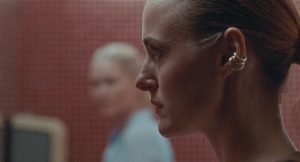
A still from ARMAND
HTN: The film maintains incredible tension while mostly taking place in real time. How did you work together to sustain that energy through such long, complex scenes?
RR: We follow the fun. Halfdan had versions of the script but in the end he went with what he thought would be most fun. On set, whenever it was very long or complex or high intensity, we would just follow the most extreme and fun thing.
HUT: On the first day of Renate’s shooting, I remember she came in dressed as the character and we did that first scene. After the first take we both looked at eachother like, “Oh shit!” We knew we had a movie. It was just a great moment. Renate did her rehearsals in a dry way to hold back.
RR: I did not want to see how the others would react.
HUT: We had talked a lot about the character, but I really did not know how she was going to play it until that first day.
HTN: There’s a pivotal extended laughing scene that I would say is one of the great moments of acting this decade. Could you both discuss how you approached crafting and performing this challenging moment?
RR: That was a lot about losing control. It is a really hard task having to laugh for that long and then have that massive change into grief and sorrow. It’s actually impossible. But building to that impossibility required the film to be high intensity from the start. That allows the audience to believe that the only way out of this situation is to just distance yourself from reality and laugh at it. It’s her only way of coping. We did that scene for 10 hours. It took a while for me to truly just lose it but it was the only way. It was an extremely intense day.
HTN: The film features two striking dance sequences. Can you talk about developing these scenes together and what they represent for Elisabeth’s character journey?
HUT: The first dance sequence was really Renate and the choreographer making something out of very little. I did not describe much in the script there. They showed me the dance 5 days before shooting and I absolutely loved what they had created. Renate had all these details that added to the character and her journey. From my perspective the scene had multiple functions. This is the time where everyone is starting to lose their sense of reality. It’s shot from different perspectives to make the audience wonder who is really losing their minds. We wanted to shoot it naturally to not emphasize the dream-like aspects of it. It’s also meant to serve as a warning to the audience that from now on anything can happen. This warning of unpredictability was quite important. It gave me a good feeling and filmmaking is about chasing those feelings.
The second scene was much more scripted. It also works on many levels. It’s Elisabeth’s perspective of how she sees the world around her. She is being admired, and likes that admiration, but at some point it gets abusive. Both this dance sequence and the accusation are about where the line is between playing and abuse.
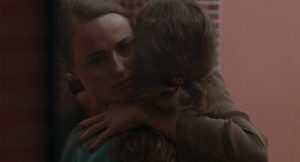
A still from ARMAND
HTN: The physicality of the film is also very striking – from Elisabeth’s boots clicking down hallways to the way bodies move through the school spaces. Could you discuss your collaboration on the physical language of the film?
RR: We talked about it very early. She is very stressed in that first scene when she does not have all of the information. Finding details and ways to express that stress was extremely important.
HUT: I had very clear ideas about how I wanted her character to be perceived. I wanted her to walk fast and be recognized as a strong body. It was really the work of Renate that grounded those more superficial traits. That’s the difference between a good and great actor to me – being able to transform the superficial information that I give into something that is really grounded with the character. I am happy you notice those physical aspects because it is something we talked a lot about.
HTN: Halfdan, your grandfather was Ingmar Bergman, and this film seems to share some DNA with his chamber dramas. Meanwhile, Renate, you’ve been reshaping contemporary Scandinavian cinema, starring in some incredible boundary pushing films. How do you both see this film in relation to Nordic cinema’s past and future?
HUT: We are both very proud of what is happening in Norwegian cinema right now. There are a lot of filmmakers trying to push boundaries in different ways. Joachim Trier has been very important for Norwegian cinema, but now there are so many coming up making such personal films. For the first time since my grandmother (Linn Ulmann) we have a true Norwegian star with Renate! I can’t speak to its relation to the past of Nordic cinema because it was so different making films when Ingmar was doing it. He made 53 films, which would be impossible today.
RR: Norway is now having a kind of golden age in cinema. We never really had a cinema history and we are building it now. Italy, Sweden, Denmark, they all have really specific histories. All those filmmakers have those influences sub consciously. We are something completely new. It is a really exciting time for cinema in Norway. I came from the theater, I worked in it for a very long time. All of these years of different teachers and co-workers, and great memories, I really fell in love with the cinematic world when I was introduced to it with Worst Person In The World. I have been finding ways to transfer what I learned in theater into the film world. For this film specifically, I was very comfortable using my physicality to express Elisabeth’s inner world. It’s harder for me to just stand with myself and be honest with something, I am more interested in making a character that is very different from me.
– Jack Schenker (@YUNGOCUPOTIS)








